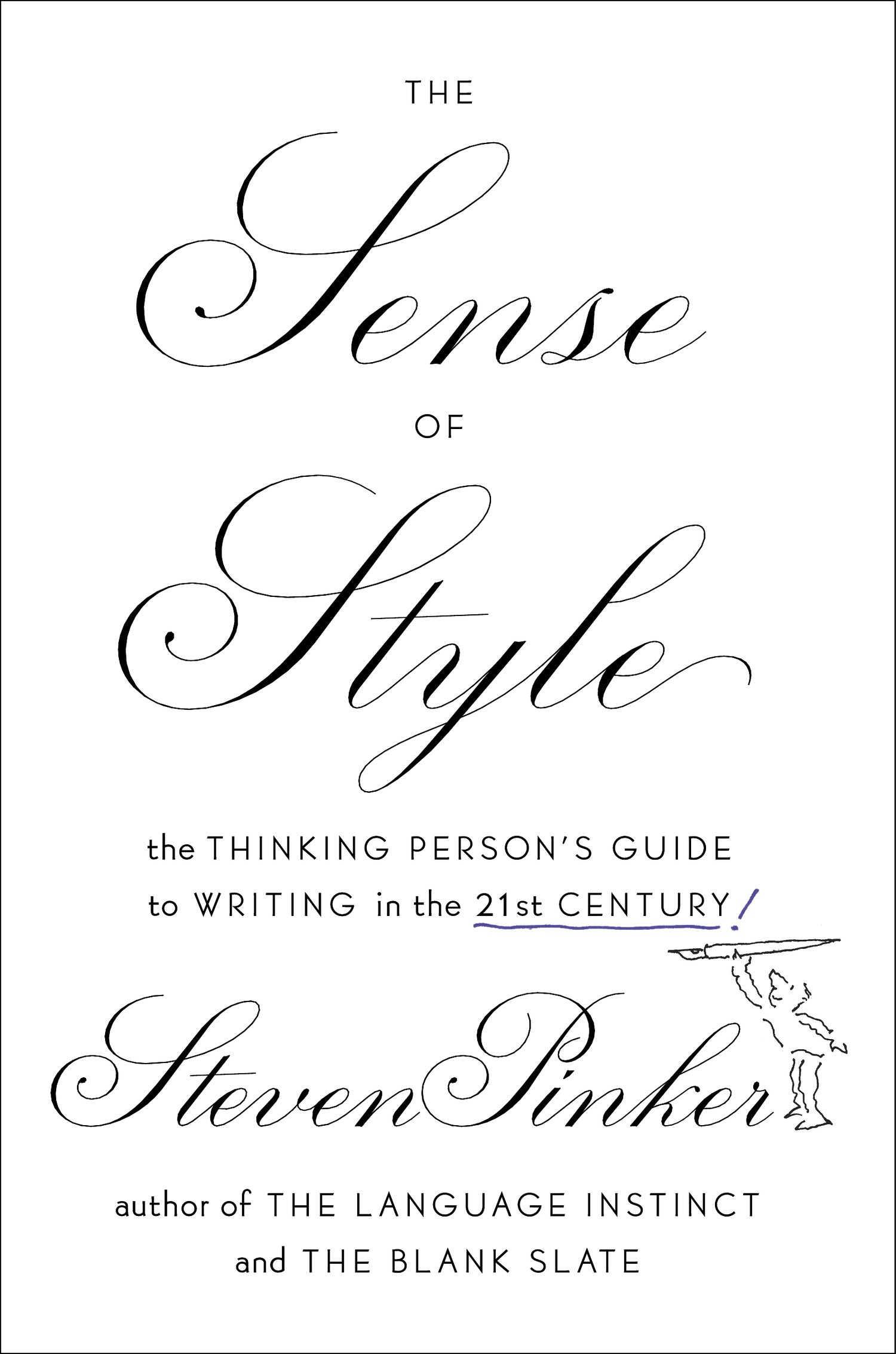by Terry Pederson
If you dreaded English class and still stumble over there, their and they’re, then Steven Pinker’s “The Sense of Style” may not be the best use of your leisure time. But if you love the English language – if you approach it with reverence, if you delight in translating thoughts into words – then jump right in and enjoy the ride.
Subtitled “The Thinking Person’s Guide to Writing in the 21st Century,” this book refutes the popular notion that the Internet is systematically destroying the language and our ability to clearly express ourselves on paper or screen. In fact, self-appointed scolds have been deploring the perceived decline in proper usage for centuries, as Pinker documents in a series of citations dating to the invention of the printing press.
Conversely, Pinker believes that evolving linguistic standards keep English vibrant and relevant. Far from an inflexible purist, Pinker – chair of the Usage Panel of the American Heritage Dictionary and an Anisfield-Wolf Book Awards juror – generally embraces this progression. He notes that 10,000 new words and word senses made it into the dictionary’s fifth edition, published in 2011.
Yet the real value of Pinker’s new book lies less in refereeing the incessant grammar wars than in probing the magic that permeates fine prose. All writers, he maintains, labor under the curse of knowledge: “a difficulty in imagining what it is like for someone else not to know something that you know.” Hence the impenetrable, jargon-filled corporate announcement or the pompous academic paper that defies understanding. Skillful writers know how to surmount the curse of knowledge.
Proper grammar, word choice and punctuation are potent weapons in this struggle, but Pinker’s opinion of what is acceptable today can seems arbitrary. Thus, he sanctions the increasingly common “comprised of,” which grates on the ear of many a careful writer who believes that the whole comprises the parts, while he nitpicks “parameter” as a synonym for “boundary.”
Such quibbles aside, Pinker is persuasive and writes exceedingly well, enlivening his text with references to that renowned linguistics expert, humorist Dave Barry, and colorful examples of syntactic strife, like a Yale student’s news release advertising “a faculty panel on sex in college with four professors.”
“The Sense of Style” is an entertaining romp with a contemporary message about the timeless gift of clear, graceful writing.


